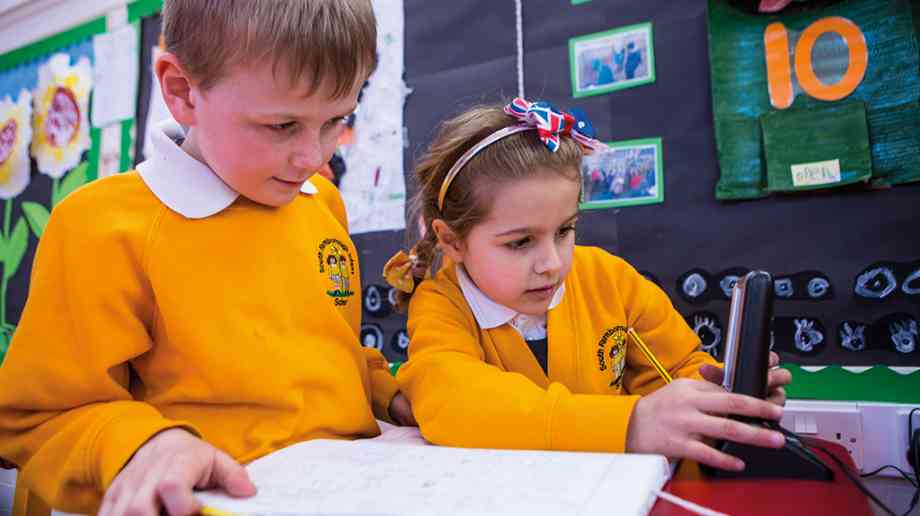
Energy saving tips from sustainable schools
The LESS CO2 programme was created in response to schools wanting more practical information and support on cutting costs and saving energy. Ellie Mika from Ashden’s LESS CO2 team shares some tried and tested tips from participating schools
Getting students and staff involved in saving energy and sharing advice between schools not only cuts energy costs but inspires positive behaviour change and is key to the success of the Ashden’s LESS CO2 programme.
Supported by Bank of America Merrill Lynch, the programme was created in 2010 in response to schools wanting more practical information and hands-on support on saving energy and cutting costs. The free energy efficiency programme teaches schools how to get energy smart and how to save vital funds that can be invested back into schools in other ways.
The programme runs over the course of a school year in a series of four half-day workshops, and includes expert advice and resources for staff as well as the opportunity to ask questions, discuss ideas, and brainstorm solutions. The workshops cover various aspects of energy saving, from recording meter readings to monitoring energy use, behaviour change for staff and students, and how to incorporate sustainability into the curriculum.
Local schools work together in geographic clusters of up to 15, sharing information, experiences and advice on how best to tackle energy usage and reduce energy bills. On average, schools that take part in the LESS CO2 programme save £2,600 and 10 tonnes of carbon in their first year.
As well as the workshops, participants also receive mentoring from Ashden Award‑winning schools, an energy audit, and advice on steps to reduce their energy use.
IMPACT
So far, more than 135,000 pupils have learnt about energy saving and nearly 300 schools have benefitted from the programme, saving nearly 17,000 tonnes of CO2 and £830,000 in energy bills. LESS CO2 is aiming to work with 3,000 UK schools in total over the next five years.
Gail Hill, business manager at Abbey Road Primary School, commented: “Working with the Ashden LESS CO2 programme really helped us to bring our energy saving efforts into sharper focus.”
In 2012, schools in Devon and Cornwall who participated in the programme saved an average of £5,000 on their energy bills, made a real impact in the behaviour change of pupils and staff, and started to integrate sustainability throughout the curriculum.
The amount of carbon savings from participating schools is also impressive. Schools in Devon and Cornwall reduced their CO2 emissions by over 300 tonnes over the course of the programme. Many schools also reported a greater sense of community from the local support networks created through their participation in the programme.
Furthermore, LESS CO2 can help boost local economies by encouraging schools to work with local contractors such as solar power installers and energy efficiency advisors.
According to Alex Green, LESS CO2 programme manager: “From staff awareness to student engagement, the positive change we’ve seen in the participating schools as a result of the programme has been remarkable, not to mention their reduced carbon emissions.”
TOP TIPS FROM SCHOOLS
One of the key elements that makes the LESS CO2 programme a success is the emphasis on learning and the sharing of ideas, tips and stories between schools and amongst students. One of our graduating clusters in Devon shared some advice on what they found to be key in their transition into a sustainable school. Aside from basic energy-saving actions such as switching off lights and computers, and limiting and conserving heat, they shared a few additional tips for schools preparing for their energy management journey.
THE POWER OF DATA
Collect data at the beginning of the process. This can help show the potential impact of the work and the progress made, and can also support any funding requests. Learning how to calculate savings and payback times can also be valuable in assessing impact and planning.
Keep tabs on how much energy is being used. This information can be used to identify and change non-sustainable behaviours.
Set short, medium and long-term goals. Short-term goals can be simple solutions that are quick and easy wins and keep everyone engaged, while long‑term goals should be ambitious.
Change takes time, so plan accordingly. Take the time to speak to all members of staff, contact energy suppliers, and review the energy data.
Key to the success of any energy saving initiative is the involvement and collaboration of everyone. Inform students, teachers and building staff of school‑wide goals and changes they can make to ensure a more sustainable school.
GETTING STUDENTS INVOLVED
LESS CO2 makes students and staff in primary and secondary schools more aware of the impact they have on the environment and inspires pupils to take more responsibility in the running of their school. To get students really involved and to give them a feeling of ownership over the school’s energy saving plans, we’ve come up with a few ideas to get them excited and engaged with the programme.
Green clubs: students can be an energetic and creative source of ideas, and are great at encouraging others to save energy (and telling them off when they’re not). Have them establish an Energy Saving Club and hold an assembly to give other students tips on how to save energy.
Monitoring: give students ownership and responsibility in their energy‑saving actions. Have them run regular checks on classrooms to make sure computers and lights are switched off.
Rewards: reward individual students or entire classes with badges for remembering to turn off their lights and computers. Provide incentives for them to engage in sustainable practices.
For example, award good energy-saving behaviour with gold stars and tally these on a board in the classroom. Have a prize each term for the top three students on the board.
Laura Stanley, staff governor of West Byfleet Junior School in Surrey, commented: “I have really enjoyed taking part and, as a result, big changes have been made. The children are so enthusiastic about energy saving/monitoring. Our mentor has been so supportive.”
INTERESTED IN THE PROGRAMME
The free LESS CO2 Programme is recruiting schools for the next academic year. Whether your school has already made a start in cutting energy use or is starting from scratch, all that is needed is willingness to learn and engage in the programme. Register your interest on our new website and start saving.
LESS CO2 is run by Ashden, a charity with a mission to help accelerate the transition to a low-carbon world through increasing the take-up of sustainable energy. Ashden’s annual Awards Ceremony recognises and rewards the most innovative sustainable energy pioneers in the UK and developing world.
Further Information:Latest News
09/01/2026 - 10:13
The measure, added to the Children’s Wellbeing and Schools Bill, delivers on the commitment made in the government’s manifesto to bring multi academy trusts into the inspection system.
08/01/2026 - 10:30
The government is launching a new app allowing students to view their GCSE results on their phones for the first time from this summer.
08/01/2026 - 09:45
Education Business LIVE has announced that Professor Samantha Twiselton OBE of Sheffield Hallam University will speak at the event in March 2026, delivering two thought-provoking sessions focused on initial teacher training and SEND provision.
07/01/2026 - 10:10
Solve for Tomorrow is a free, curriculum-linked programme which is mapped to Gatsby Benchmarks 4, 5, and 6, helping teachers embed careers education without adding to workload.
06/01/2026 - 10:24
London's universal free school meals programme has not led to improvements in pupil attainment during its first year, but has eased financial pressure and reduced stress for families.







